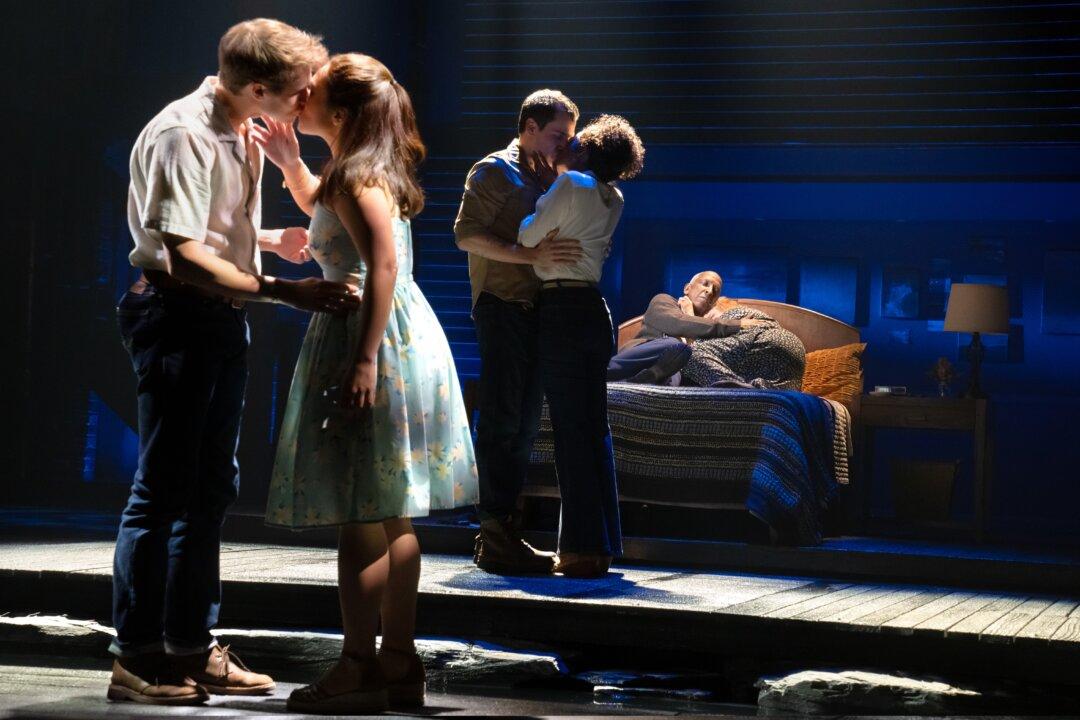NEW YORK—When you find your true soul mate, you need to be prepared to fight for them, no matter what stage in life you are in. This is one of the key messages in the new Broadway musical “The Notebook,” based on the best selling novel and subsequent film adaptation of the same name.
In the present, 72 year-old Older Noah (Dorian Harewood), arrives at an assisted living facility to visit Older Allie (Maryann Plunkett), a woman battling dementia. During his visits, Noah makes it a point to read a story from a notebook he carries with him. His repeated relating of this tale is often the only thing able to keep aged Allie calm. Her bouts of anger and frustration happen ever more frequently as her mental faculties decline.





